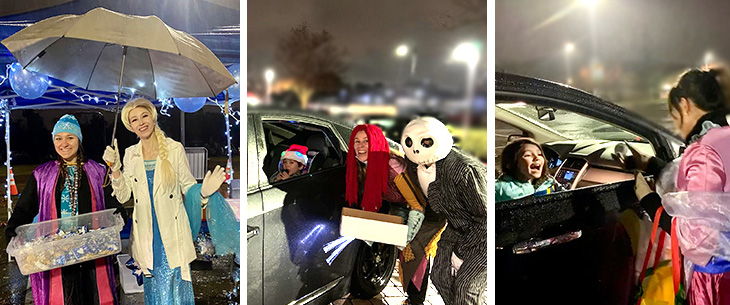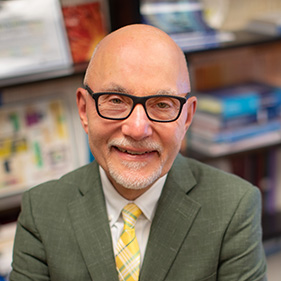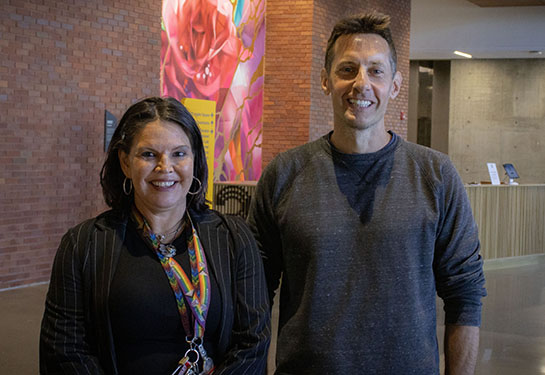MIND Institute thanks research families with winter wonderland event
Despite soggy weather, more than 500 people enjoyed the outdoor festivities
Despite a downpour and chilly winds, hundreds of people attended this year’s Winter Wonderland Thank You Party at the UC Davis MIND Institute.
Families who have taken part in research studies over the past year were invited to drive through the parking lot, which was transformed with colorful lights, costumed characters and inflatable decorations. The event, held last weekend, is an annual labor of love for MIND Institute faculty, staff and trainees.
“The weather almost made us cancel, but we know how much this event means to our families,” said Veronica Tuss, child life specialist at the MIND Institute. She and the child life team, along with staff members and volunteers, worked through the wind and rain from 9 a.m. to 9 p.m. to ensure the festivities took place.
It was worth it. More than 500 people turned up.
“It really demonstrated the significance of the event because people were loading up their cars and driving through the stormy weather to see us,” Tuss said. “Families told us that this is a cherished tradition and that they cancel plans, rearrange schedules and travel long distances for it. That really motivates us to make it special for them.”

An annual tradition of gratitude
The Thank You Party is an opportunity for the MIND Institute to show its gratitude for the hundreds of children and families who take part in some of the world’s most important research studies about autism, fragile X syndrome, ADHD, Down syndrome and more.
“Without our research families, our scientists and clinicians wouldn’t be able to make advancements that benefit people affected by neurodevelopmental disabilities,” said MIND Institute Director Leonard Abbeduto. “Their generosity is inspiring and impactful, and we are very grateful to them for giving of their time.”
There are currently 18 studies at the MIND Institute that involve human participants. Many of them are long-term projects that families participate in for years.
Without our research families, our scientists and clinicians wouldn’t be able to make advancements that benefit people affected by neurodevelopmental disabilities. Their generosity is inspiring and impactful, and we are very grateful to them for giving of their time.”—MIND Institute Director Leonard Abbeduto
Thanks to event sponsor SchoolsFirst Federal Credit Union and donations from Children’s Miracle Network and PetSmart, all families received holiday treats such as hot cocoa, popcorn and cotton candy along with other snacks, toys, crafts and goodies. The UC Davis Police Department, Sacramento Fire Department and Sacramento Sheriff’s Department all turned up to visit with families. Volunteers from the 501st Legion Central California Garrison dressed in Star Wars costumes and volunteers from Patelco Credit Union and Jesuit High School also volunteered at the event.
“We were overwhelmed by the support and the turnout this year,” said Erin Roseborough, a child life specialist at the MIND Institute. “For us, this is all about saying thank you, and it was gratifying to see the excitement from the children when they saw the displays or the hot cocoa.”
This was the MIND Institute’s 20th annual Thank You Party.
The UC Davis MIND Institute in Sacramento, Calif. was founded in 1998 as a unique interdisciplinary research center where families, community leaders, researchers, clinicians and volunteers work together toward a common goal: researching causes, treatments and potential prevention of challenges associated with neurodevelopmental disabilities. The institute has major research efforts in autism, fragile X syndrome, chromosome 22q11.2 deletion syndrome, attention-deficit/hyperactivity disorder (ADHD) and Down syndrome. More information about the institute and its Distinguished Lecturer Series, including previous presentations in this series, is available on the Web at mindinstitute.ucdavis.edu.






